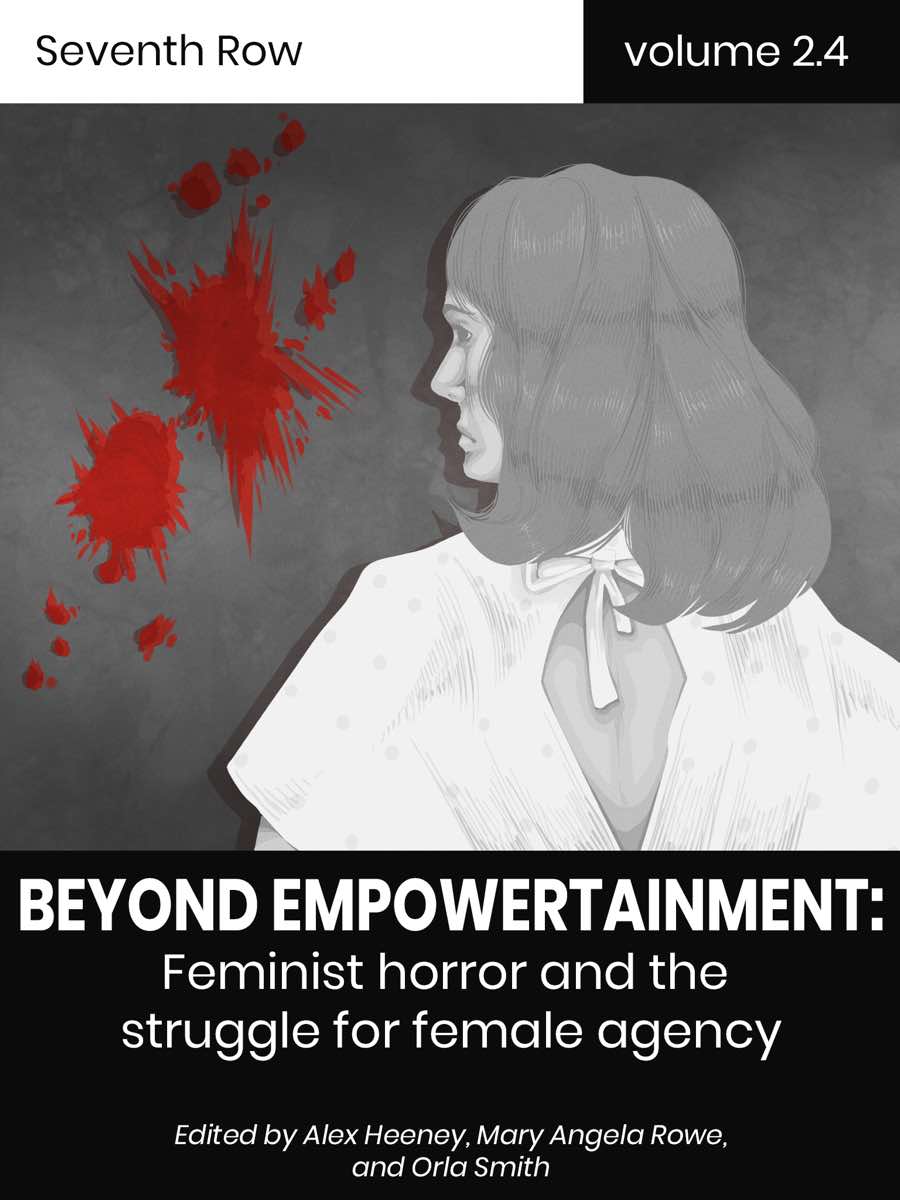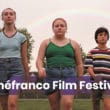Ben Flanagan muses on LFF 2019’s competition selection and to what extent it represents the current state of cinema, particularly British and genre cinema. Read more LFF 2019 coverage here.
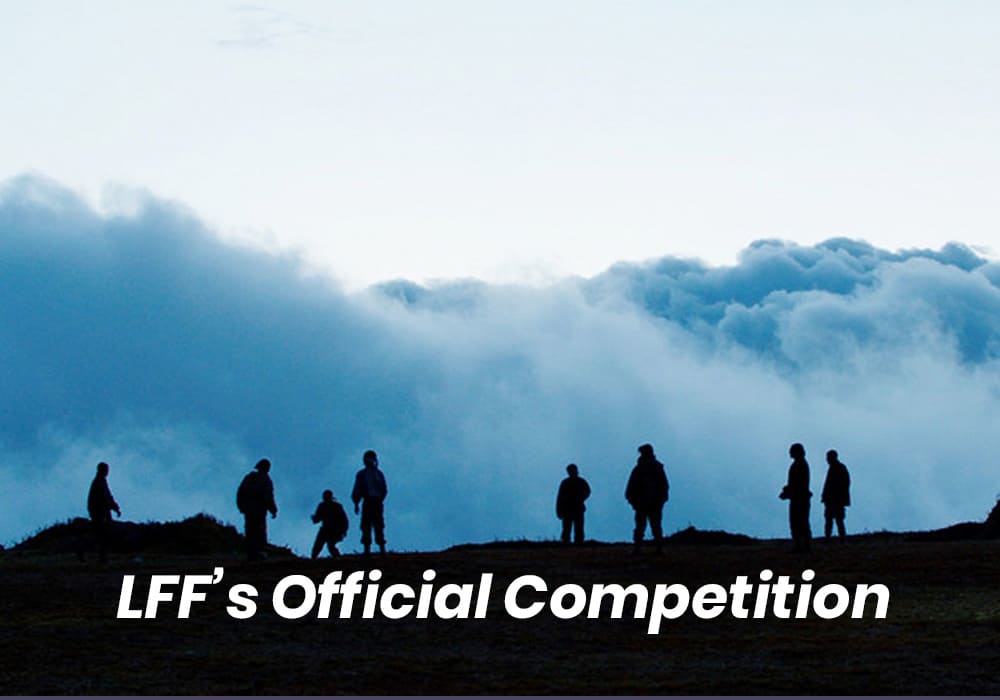
Like its New York equivalent, the London Film Festival (LFF) contains relatively few world premieres, even of homegrown talent. Producers aiming for awards traction or year-end acclaim tend to premiere their films at the Toronto or Venice Film Festivals in September. That’s how films by established British directors, such as Michael Winterbottom’s Greed, which you might expect to make noise with a premiere in London, come to play in LFF’s ‘Gala’ slots after their world premiere. LFF often feels less like a festival than a week-long preview of upcoming releases. Especially if one follows the crowd, you’ll see a bunch of films that will be in the multiplexes soon enough: Jojo Rabbit, Knives Out, The Irishman.
The Official Competition, however, often proves to be one of the festival’s more exciting elements, veering away from the biggest directorial names. Unlike the Gala, the notion of competitiveness provides a stamp of quality — these films must be the best thing here, right? If the competition is filled with critical B-tier auteurs reaching for the top flight, that makes it a fascinating place to find the kind of daring and boundary-pushing work that ostensibly keeps audiences returning to festivals. In a riposte to the other major festivals’ reluctance to award women, the juries here often bestow female filmmakers with the top prize, having done so every year since Athina Rachel Tsangari’s Chevalier in 2015. And yet despite a greater parity in films by women, this years selection offered few real breakthroughs, mostly tantalising audiences with the promise of something greater to come.
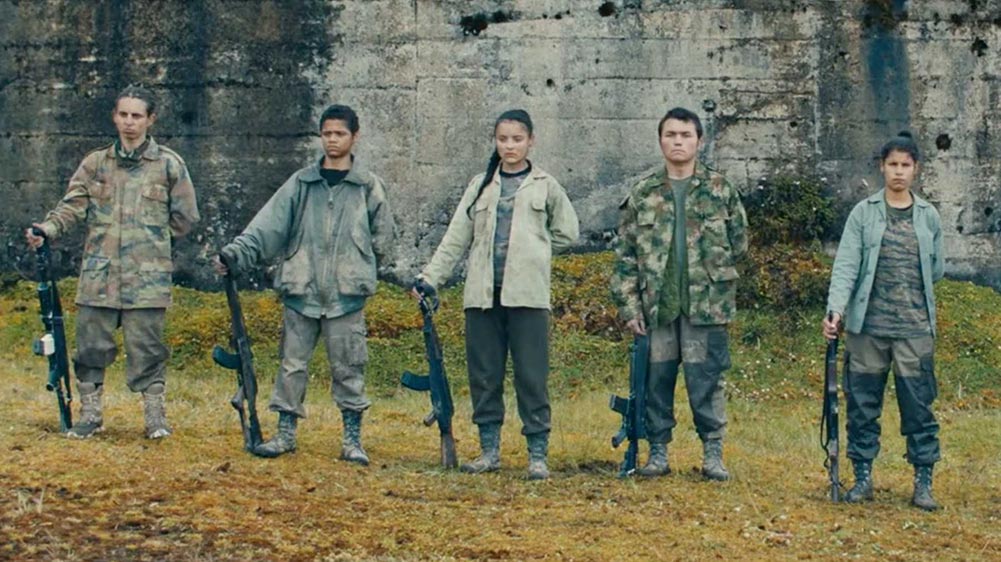
The hands of fate must have been at work for Alejandro Landes’ Monos to win the competition from Wash Westmoreland’s jury. The Columbian child soldier drama features lucid, exciting filmmaking, and some of the competition’s most unforgettable cinematography in DP Jasper Wolf’s images of the Amazon. Moisés Arias of Hannah Montana fame, chiseled to within an inch of his life, pretty much steals the show as a jackknife child soldier with Kurtzian ambition.
But Monos aestheticises child soldiers to a degree that’s irreconcilable with the film’s anti-war sentiment. After a point, it loses itself through repetition: characters keep trying to escape before being caught, and so on. The obvious Lord of the Flies parallels, made literal through the image of a pig’s head on a spike, don’t really work either as the tale is only superficially similar. Its win seemed emblematic of a trend towards genre hanging over the selection. With so many films here gesturing to their B-movie roots as a method to get closer to their characters’ psychology, the choice of Monos — the biggest, boldest, loudest of the lot — must have been appealing. But other films here did more with their shared preoccupations.
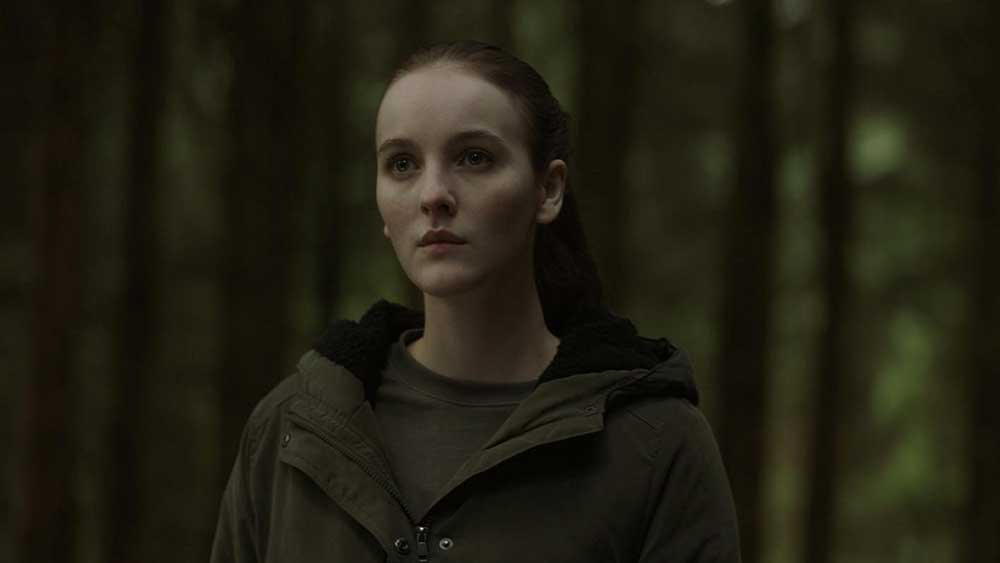
Specifically, the traumas of youth are a recurring theme in the competition films. Familial traumas come up again and again, often suffered by a young woman. The figurative families of Monos and the Raffey Cassidy cult-escapee vehicle The Other Lamb (dir. Małgorzata Szumowska) provide twisted takes on the nuclear family. But just as terrifying are the generational scars in Rose Plays Julie (dir. Joe Lawlor, Christine Molloy), an Irish drama that examines a young veterinary nurse’s search for her real parents. It’s a slow-paced, slippery beast, hiding its more lurid impulses behind a contemplative tone. Bartok strings and closeups of characters staring into the distance in slow motion give such a heaviness to proceedings that when Rose’s discoveries send the film into surprising, almost Hitchcockian-thriller territory, the viewer is confronted by where to place their emotions. Though wigs, actors, and assumed identities all play a major role, and Checkov’s syringe full of euthenasia fluid holds your attention, the film never fully exploits its thriller framework.
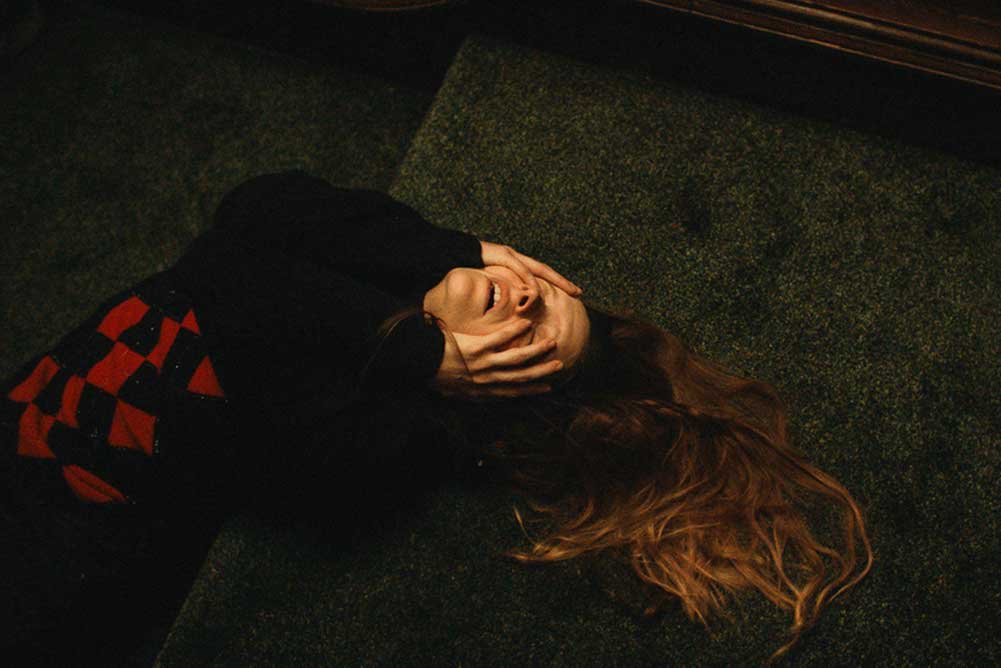
It isn’t a million miles away from Rose Glass’ buzzy Saint Maud, the spirituality thriller which delves into deep psychological turmoil through tight closeups and tactile camerawork. In a setup that isn’t too far from The Bitter Tears of Petra Von Kant (1972), young nurse Maud (Morfydd Clark), an obsessive Christian, believes that she can save the soul of her rich actor patient, played with camp relish by Jennifer Ehle. It has been picked up in the US by A24, and will surely be labelled with the ‘Elevated Horror’ moniker. Through the writhing physicality of Clark’s central performance, the eros/thanatos confusion at the film’s core is explored through feeling rather than dialogue. It’s mostly successful, particularly from a first-time filmmaker who’s barely hit 30 (and with whom you can read an interview in our new ebook Beyond Empowerment). Word on the ground is that the only reason Saint Maud didn’t win the competition is that Glass was awarded the $50,000 IWC Schaffhausen Filmmaker Bursary Award at the beginning of the festival.
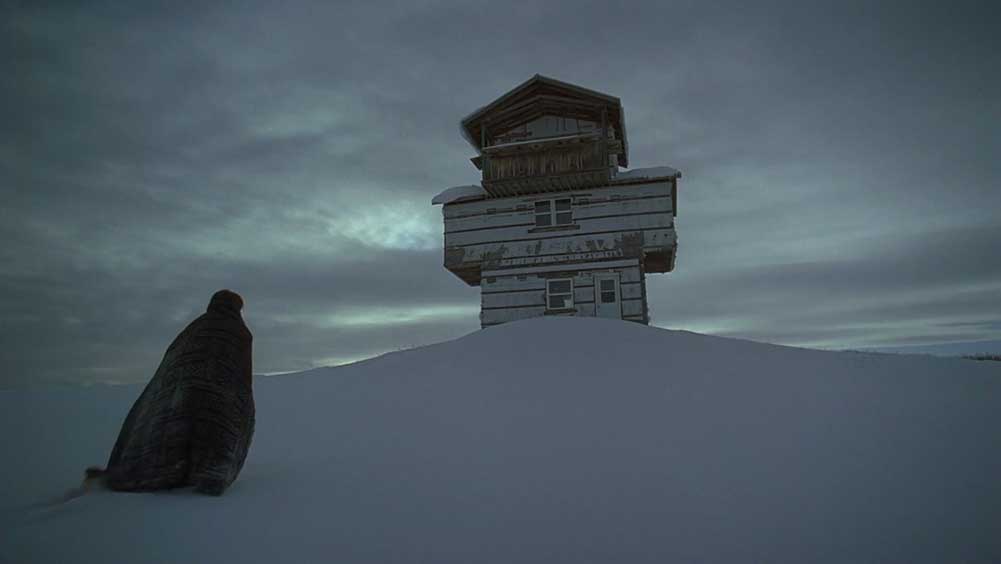
These themes are seen again, in The Lodge, from Goodnight Mommy (2014) directors Veronika Franz and Severin Fiala. Still suffering PTSD from her past as the daughter of a suicide cult leader, Riley Keough’s character struggles to relate to her new boyfriend’s children after their mother’s own suicide. This leads them to a winter lock-in where everything gets spooky. As it happens, the film fulfills the basic requirements: it is spooky, it keeps you guessing, and it’s suitably morbid. However, it never quite steps out of the shadow of horror past — The Thing (1982) is even namechecked at one point, and allusions to The Shining (1980) are tiresome. It’s ultimately disposable, stylish nonsense that aims for so many things that it ends up entirely mishandling its depiction of the mental health issues that plague so many of the characters. It might be caught between instincts, but it’s worth putting up with the muck to witness two European filmmakers operating at a higher production level than before. As they swerve away from festival-oriented cinema to make a more commercial movie, Franz and Fiala ironically end up alienating the audience more than ever.
On the festival’s selection announcement, several news stories celebrated the fact that 60% of films in competition are directed by women, an extremely rare number among major festivals. It is real, representative change the industry needs to adopt. Take, for example, this year’s slate at Venice, a festival which featured only two films directed by women in its competition. The global reach of the Venice slate show a wider breadth of ideas and styles, even if they failed to make space for female filmmakers or people of colour (Africa and India remain unrepresented on both slates). Consequently, entries like Roy Andersson’s About Endlessness and Pablo Larraín’s Ema share little other than the stamp of quality associated with selection by a festival renowned for minting the best contemporary cinema.
If London is the anti-Venice, with the aim of showcasing the best new work rather than honouring the same returning guests, one wonders if the selection at London lives up to the promise that change in representation equals a change in the kinds of stories told. So much of the London selection are artful genre films with a young, tenacious female lead, that deal with the links between mental illness and past trauma. Seeing these films grouped together makes it seem like a fashion statement more than a stamp of quality, or at least, suggests that a new set of tropes are emerging.
It also makes one question the placement of a film like the Saudi drama The Perfect Candidate (dir. Haifaa Al-Mansour), about a doctor who runs for office in her hometown, which I wasn’t able to see, but Seventh Row editors Orla Smith and Alex Heeney named one of the best films at TIFF. As with South African gay soldier drama Moffie (dir. Oliver Hermanus), its inclusion is so incongruous with the larger theme of the competition, that it seems cynically positioned to placate a need for non-English language representation, rather than standing on its own merits. But I’d still take this grouping of films by emergent filmmakers, an optimistic vision of future film today, over Venice’s assortment of late-career Auteurs and rapists.
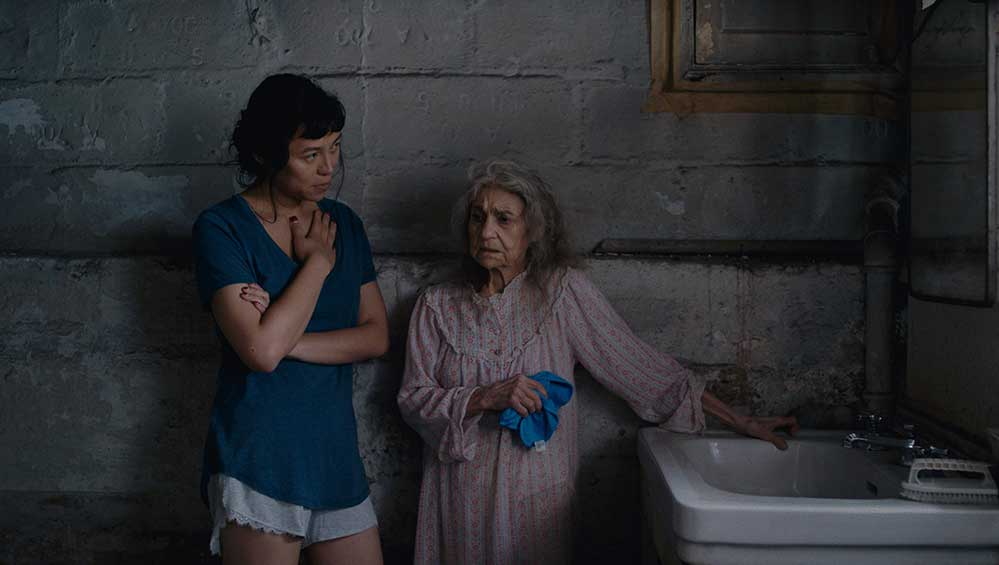
As it approaches an outside run at the awards season melee, the Shia LaBeuf autofiction Honey Boy (dir. Alma Har’el) is well served by a competition slot. It behoves the film not to seem like a goofy novelty. The other American film is Lingua Franca (dir. Isabel Sandoval). From its opening sound of answerphone messages play over establishing shots of present-day New York, Sandoval is dedicated to Akermanian rhythms. The real-time peeling of an orange. An oppressive sound design where everyday sounds like cupboard doors and dripping taps are high in the mix.
Its tale of a transgender carer without her immigration papers, and the working class guy with whom she forms a relationship, applies Akerman’s high art with broad politicism, and dumbs them both down. Each small moment of change, or obvious tragedy, hits the expected beats with such a sterile precision that it feels designed to be seen as a movie of the moment, particularly when it invokes Trump through news clips. But nothing about its rhetoric comes across as daring when its aesthetic choices are so slavishly devoted to replicating Akerman’s vision of female space. One wonders what Sandoval’s own visual language is, particularly as she is a trans woman who has shot and edited the film herself. One hopes to see her style develop.
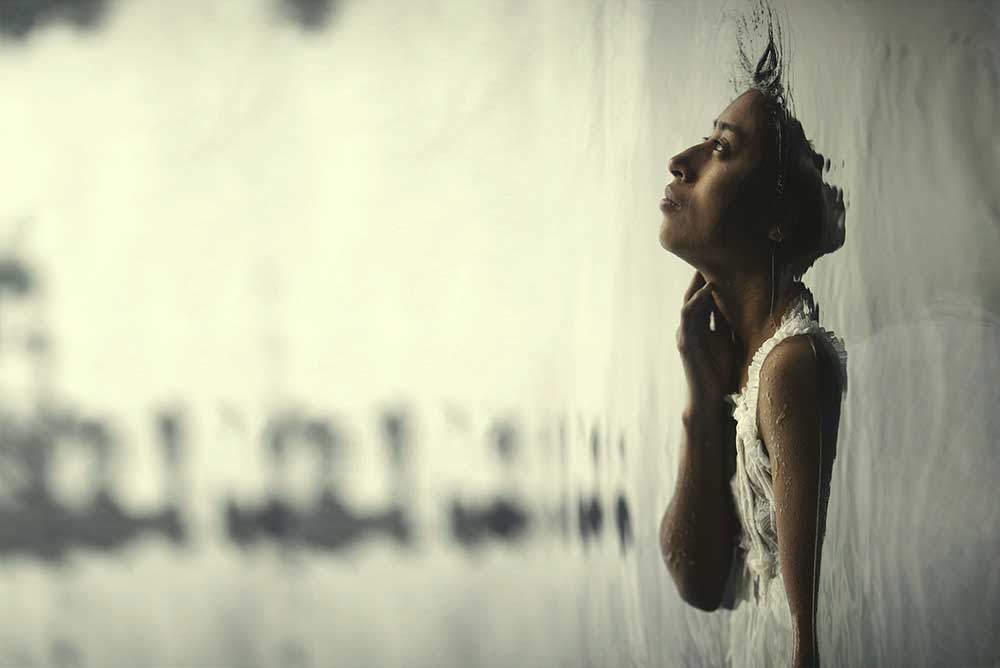
Far more outrageous is La Llorona (dir. Jayro Bustamante), which depicts ex-military dictator Efraín Ríos Montt and his family hiding in their mansion after he is acquitted of war crimes (his regime in Guatemala killed or disappeared over 200,000 people). The constant noise of protestors outside, cabin fever, and his alzheimer’s send the family mad. From here, Bustamante leans all the way into the ghost story of The Weeping Woman, and La Llorona lives up to its name, with increasingly supernatural elements used to visualise the psychological dawning of this man’s crimes by his family. Each generation seems more attuned to the guilt of his crimes than the one previous, making the granddaughter as though afflicted with a hereditary disease that’s skipped a couple of generations. Bustamante isn’t the most subtle director (his film Tremors also plays the festival this year, decidedly less successful), but that’s why his lively filmmaking works here. A long courtroom scene featuring a slow zoom out from Ríos Montt’s face is the stuff of standard art-film fare, but it’s followed by a tense, gun-wielding crawl through a haunted house. Bustamante’s mixes styles to draw out the parallels between the folkloric and the literal ghost stories, and does it skillfully enough that the film never feels like it’s talking at you. By the end, it is clear that the curse of The Weeping Woman is a folk-tale that speaks to national grief and personal loss, this trauma once again articulated through the youngest female character in the cast.
The way that the competition kept returning to genre may be symptomatic of a larger cultural trend toward independent cinema reaching for immediate ‘cult’ status by forging a grab-bag of ideas and styles. Genre can be cynically seen as just an easy way for filmmakers to gesture toward cineliteracy, while sustaining an aesthetic oppression that is popular at European festivals. One of the best films that played at the festival, Bacurau (dir. Kleber Mendonça Filho, Juliano Dornelles) managed to turn this on its head by getting its own back on the Hollywood imperialist fantasy. In satisfying the audience’s bloodlust with its heightened cinematic style, it makes the audience consider when and why they’ve been satisfied by movies before. It’s a film about genre, which many of the films in competition aren’t, despite their self-awareness.
Even though many of the individual films weren’t entirely successful, it was still satisfying to see a competition used as a thematic strand as much as one politically designed by the festival to placate the various backers or studios that support it. A film like ‘period Western’ Fanny Lye Delivered (dir. Thomas Clay), which has languished in post-production since 2016, would appear to be in the competition based on a quota to the British film industry (and star Maxine Peake). But to put it alongside these other films draws out the links, and the different techniques, that contemporary filmmakers can use to put familiar ideas across. That is the major success of LFF, which doesn’t have the advantage of hosting many premieres.
As a second look festival, it can reassemble how the films in its programme are presented, and make them stand out differently. The festival is structured around thematic strands like ‘Love’, ‘Dare’, and ‘Cult’, which means that some of the best films in the programme can get buried if they don’t have a gala slot. Terence Malick’s A Hidden Life was one such film, despite being his most accessible work in 20 years. But does Malick benefit as much from a competition slot as Rose Glass? The fact is that the festival takes a leap by supporting the filmmakers in competition, and it has done so in the right direction by supporting early career filmmakers, especially women.
Still, I wish that relatively under-the-radar films like Talking About Trees (dir. Suhaib Gasmelbari) and Atlantics (dir. Mati Diop), had appeared in competition here, as they were the best films at the festival, and they might have fit with the competition’s emergent genre theme. Atlantics, with its swooning, desperately sad ghost story, uses genre with a gentle touch that foregrounds its social realism. But it played in competition at Cannes, and one feels that Mati Diop’s star is already rising fast without the LFF boost. Gasmelbari’s brilliant documentary about Senegalese cinema already won a top prize at Berlin. It is LFF’s imperative to seek out their own stars, which they have demonstrated in their previous awards for competition titles on Andrea Arnold’s and Clio Barnard’s respective debuts. If LFF continues to take risks with its Official Competition, then surely they will strike gold again soon.
